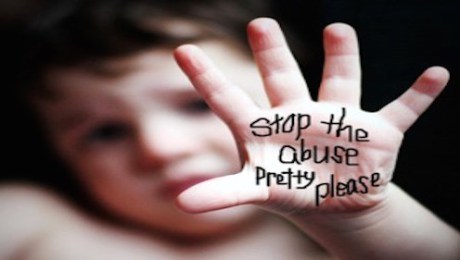
Image Courtesy: Projecthorizon.org
When it comes to Abuse, sometimes the only guilty ones are not the perpetrators of the act, those of us that sit down, fold our arms and watch are equally guilty.
Daily, we are bombarded with various scenarios where, as a result of negligence or not being vigilant, children suffer abuse from loved ones or even total strangers.
To abuse means to mistreat, maltreat, ill-treat, treat badly, ill-use or misuse. Any situation where a person is being treated with cruelty or violence, especially regularly or repeatedly is abuse.
And contrary to popular belief, abuse is not necessarily physical, it manifests itself in various forms.
Over the next few posts we want to consider the different types of abuse and how to protect your child from the trauma of abuse.
Abuse can be:
- Verbal/Emotional Abuse
- Sexual Abuse
- Physical Abuse
In this post, I'd like to address verbal/emotional abuse.
Usually not so easily detected, verbal abuse is a form of emotional abuse. It is often used by the abuser as a form of control on the child, stemming from some feeling of inadequacy and failure. And it can manifest in the form of:
- Name Calling
- Direct or Indirect Constant Criticism to the child or even to a third party
- Rejection of the child by saying things like "I wish you were never born"
- Yelling and screaming
- Sarcasm and Mockery
- Neglect of the Child
"The language we use to communicate with one another is like a knife. In the hands of a careful and skilled surgeon, a knife can work to do great good. But in the hands of a careless or ignorant person, a knife can cause great harm." Exactly as it is with our words." - Author Unknown
Sometimes, it could be overwhelming caring for children, especially the younger ones. But, as a mom, we want to protect our kids from an abusive environment and the long term psychological effects of abuse. So, what if you find yourself in this kind of situation? As difficult as that may be, you need to make some drastic behavioral changes to save yourself and your child from this kind of behavior.
So, what can you do?
- Don't hesitate to offer your child an apology if you have lashed out inappropriately or in anger
- Set realistic and age-appropriate expectations for your child. Understand that this child has his own limitations and there are certain things he cannot do yet. This will help you in your feelings of frustration when dealing with your child
- Always take a short break to calm down on your anger before you respond to your child. This will help you to respond better and in a more loving way
- Take a break to rest well. Sometimes, fatigue and sleep deprivation may lend a hand to your feeling of irritability, and consequently, angry responses.
- Offer your child appreciation when they have done things worthy of commendation
"The words with which a child's heart is poisoned, whether through malice or through ignorance, remain branded in his memory, and sooner or later they burn his soul." - Carlos Ruiz Zafon
What if you're not the one involved, and you just want to protect your child from abusive situations?
- The safety of your child comes first. If your child reports any incidence of abuse to you, then take the report seriously, and don't shut the child up
- Let your child know that she's not at fault for being emotionally abused
- Report the issue of abuse to the appropriate quarters - for instance to the Head of School, if it's a teacher
- Physically remove your child from that situation till the issue of abuse has been resolved with the offending party
Oluseye Ashiru
Lookout for the next posts in this Series on Child Abuse where we deal with physical abuse and sexual abuse.
Check Out more posts like this by Oluseye on http://www.strivingnigerianmom.com
Follow me on twitter: www.twitter.com/MadamAshe
